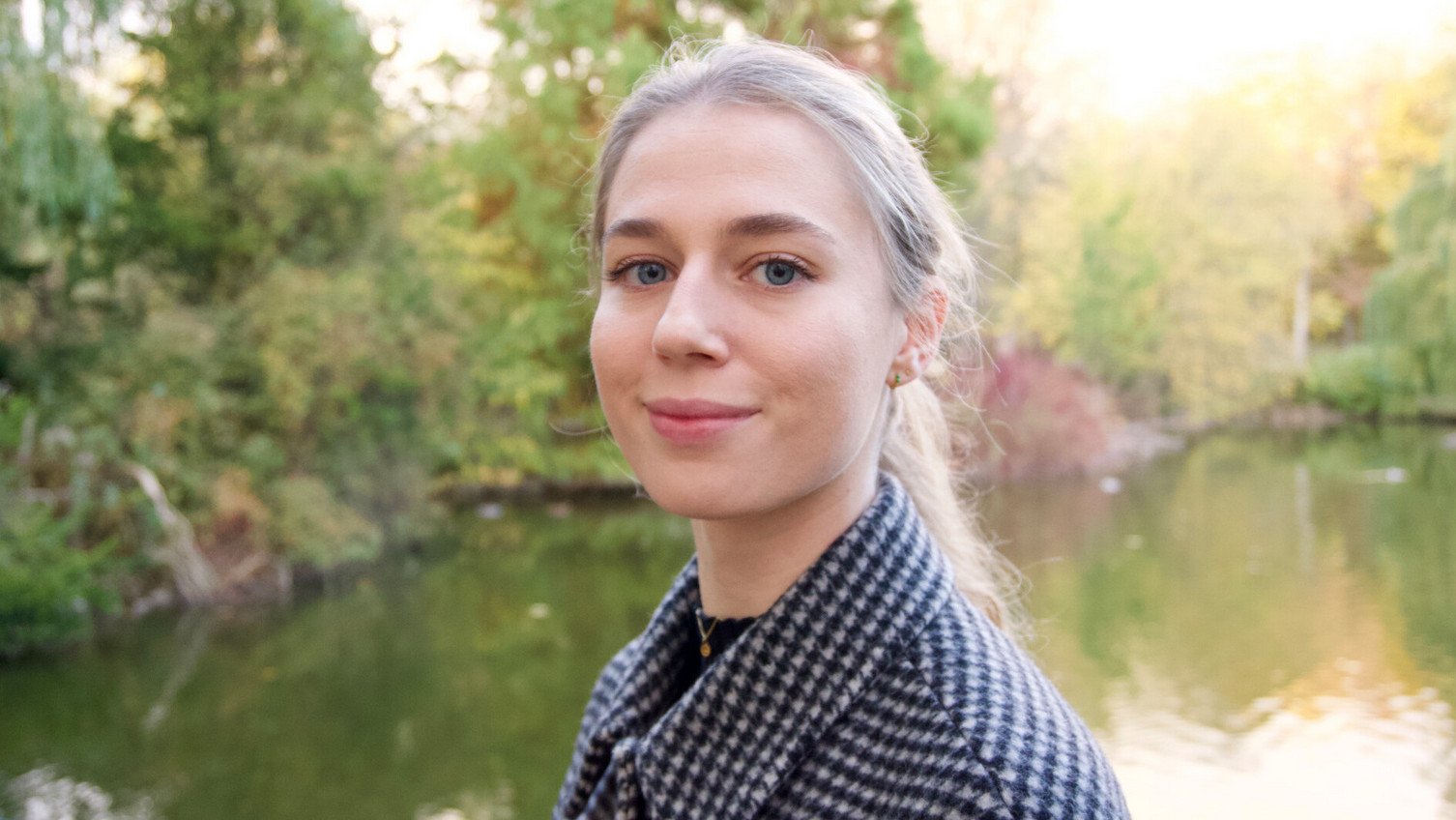Climate Reporting: Annabelle Braasch - Making a difference in the economy
2022-12-12 In her Bachelor's thesis, the alumna investigated how ecologically sustainable the German capital market is and was able to publish the results in the peer-reviewed journal "Sustainable Development". Today, she is studying the Master's programme "Climate Change" at the University of Copenhagen.
The choice of study was easy for Annabelle Braasch. She already chose the sustainability profile in high school, was interested in biology and completed two internships in business: "That's where the leverage should be. All actors need to address the societal challenges, but we don't have time to wait for stricter policies. Businesses need to be proactive." With Leuphana, she found the right place to study: "In Lüneburg, I had the opportunity to combine the International Business Administration & Entrepreneurship programme with Sustainability Sciences." Annabelle Braasch decided to focus on Ecological Restoration in order to better understand the natural science perspective. Especially in business, she says, the connection to nature has been lost: "That's why climate concerns are often disregarded in boards of directors. Short-term financial performance is in the foreground and sustainable change is absent," explains Annabelle Braasch.
With this statement, she looks back on the results of her bachelor thesis and at the same time first scientific publication: "Climate Reporting Quality Following the Recommendations of the Task Force on Climate-related Financial Disclosures: A Focus on the German Capital Market". The student dealt with the quality of climate reporting on the German capital market. The assessment model was based on the recommendations of the Task Force on Climate-related Financial Disclosures (TCFD), which has become increasingly important as a framework for climate reporting in recent years and is even binding in some countries.
The student invested a lot of time in the survey: "I manually extracted the climate-relevant data from the reports and distinguished between the four areas of the TCFD recommendations, i.e. governance, strategy, risk management and key figures and targets," she explains. The quality of the information was then assessed based on its specificity and the presence of quantitative indicators. The results of the empirical analyses were so significant that even after her graduation Annabelle Braasch worked on a scientific publication in an international sustainability journal with a double-blind peer review process on this topic together with her supervisor for the bachelor thesis Prof. Dr. Patrick Velte, Professor of Accounting, Auditing & Corporate Governance: "Our results indicate that some listed companies may be greenwashing. Many companies have set climate neutrality as a goal but the goals and measures of some companies are still very intransparent. It is not clear whether and how the companies are really aiming for net zero emissions," says the alumna.
In addition, almost no company considered climate scenarios when assessing their risks and opportunities, reports Annabelle Braasch: "This shows that most companies do not yet include climate change in their strategic direction, or if they do, they probably do not report on it because their current strategy is not sustainable in the long term. It is not enough for companies to set targets and produce reports. They need to adapt their strategy and be forward-looking."
Already during her studies, Annabelle Braasch completed an internship at a Big Four auditing firm in the sustainability sector: "The topic of climate reporting fascinated me right away. I'm glad I was able to write my thesis on it and was so well supervised that I was even allowed to publish my results."
Annabelle Braasch is now in her second year of the Master's programme "Climate Change - Impacts, Mitigation and Adaptation" at the University of Copenhagen: "It is a very interdisciplinary and international programme. My fellow students come from all over the world and have different backgrounds such as management, politics, psychology, geology, geography, biology and physics. Overall, my studies at Leuphana prepared me well for my Master's degree and my work, for which I am very grateful."

